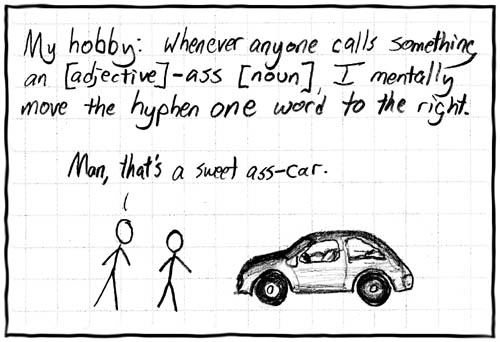I think that Lynne Truss expresses the reason in a particularly eloquent way:
It gets on my nerves when the moderate position (i.e. a preference for at least vaguely accurate language, with very good reason) is referred to as being akin to Nazism.
We have a language that is full of ambiguities; we have a way of expressing ourselves that is often complex and allusive, poetic and modulated; all our thoughts can be rendered with absolute clarity if we bother to put the right dots and squiggles between the words in the right places. Proper punctuation is both the sign and the cause of clear thinking. If it goes, the degree of intellectual impoverishment we face is unimaginable.
It gets on my nerves when the moderate position (i.e. a preference for at least vaguely accurate language, with very good reason) is referred to as being akin to Nazism.









